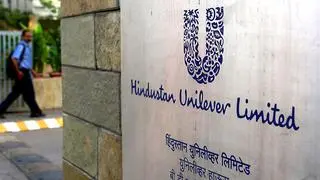As markets open up and “demand growth follows a trajectory similar to last year”, Orientbell Tiles — owned and promoted by Kolkata-based Daga family — is looking at capacity expansion through debottlenecking at existing plants.
This is the third quarter in a row —barring the April to June period when a second wave of Covid- induced restrictions were in place —when the company announced further investments to augment capacity at its existing plants.
The current debottlenecking will be done at the glazed vitrified tiles facility at Sikandrabad in Uttar Pradesh, at an estimated cost of ₹11 crore. To be completed by Q1FY23 and funded through internal accruals, the ramp-up will see expansion to 4million sq metre (MSM) per annum of the existing line.
According to Himanshu Jindal, Chief Financial Officer, Orientbell Tiles, debottlenecking is “capital efficient” and helps the company tap into “demand growth” across North India and East India markets.
Covid impact
Volume off-take was hit in Q1FY22 (April to June) due to the second Covid wave. Despite an over 100 per cent rise in consolidated turnover on a yoy basis to ₹87 crore during the period, the company reported a net loss (after tax) of ₹5 crore.
“Most channels were hesitant in stocking-up during the second wave. And it was ongoing construction projects which aided numbers. As markets open up, we are witnessing a strong demand recovery in primary channels,” he told BusinessLine .
Primary sales (to trade) have been good in Tier-1, Tier-2 and Tier-3 markets with premium offerings driving numbers. Channel partner additions have helped push up sales. Own store numbers are up too.
A price rise of 6 per cent yoy and 2 per cent on a sequential basis —because of rise in cost of materials — have not dampened demand too.
“It’s still early to talk about secondary level sales but numbers are up at the retail end too. Inventory movements are faster,” Jindal said adding, demand trajectory is “similar and in fact even better than the last year so far”.
Export markets
Meanwhile, the company is also exploring the possibility of tapping the export market. A strong anti-China sentiment in markets like Indonesia, US, Europe, Lat-Am and GCC, coupled with an improving export scenario — with price movements being in favour of exporters — is being seen.
Rising infections in China and bar on movement from its ports have improved demand in non-traditional markets like India. Unorganised players from Morbi (Gujarat), are amongst the large suppliers, at present.
“Most of these unorganised players operated at low margins, high volumes. So this is a call we have to take. Currently the export market is looking up again because of changing geo-political issues,” Jindal added.








Comments
Comments have to be in English, and in full sentences. They cannot be abusive or personal. Please abide by our community guidelines for posting your comments.
We have migrated to a new commenting platform. If you are already a registered user of TheHindu Businessline and logged in, you may continue to engage with our articles. If you do not have an account please register and login to post comments. Users can access their older comments by logging into their accounts on Vuukle.